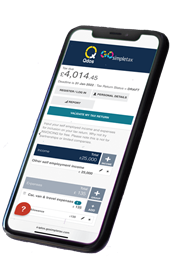Menu
Close
Running your own business isn’t free. From printing business cards for a new venture to paying for repairs on your old business laptop; expenditure can swiftly mount up.
The self-employed can have these costs reimbursed to them through their business. How expenses are deducted depends on the type of business itself. For example, the expenses of sole traders and limited company contractors differ.
Sole trader- May deduct the costs of any ‘allowable expenses’ from their gross earnings before working out their taxable profit – meaning income tax is not paid on earnings used for expenses.
Limited company- Similarly to sole traders, limited company contractors may only deduct expenses incurred solely for the purpose of business, however, do so from their gross earnings before calculating net profit for Corporation Tax purposes.
Allowable expenses: Costs that are essential to the running of a business.
It’s important to note that if something is used with dual purpose, for both business and personal use, you may only claim for the portion of this that relates to business use.
For a more detailed list of allowable expenses and regulations, see the .
Self-employed workers can claim a range of allowable expenses, including the following:
By using a ‘reasonable method’ for dividing cost, self-employed people working from home may be able to claim back part of their expenditure, including the following costs:
Reasonable methods include dividing the cost up by room usage or by the hours spent working.
If you come to complete your expenses and are unsure about whether something is deemed ‘allowable’, the .gov website has a Self Assessment helpline you can contact for general enquiries of this nature.
Want to know more about the self assessment tax return process? See our guidance here.
Simplified expenses offer the use of a flat rate instead of requiring calculation of actual business costs. Whilst simplified expenses are an option for sole traders and partnerships (excluding partnerships including a limited company contractor), limited companies are not able to make use of this method of collating expenses.
Flat rates can be used for working from home, certain business vehicle costs, and living on business premises. Any expenses exclusive of this list must be calculated as normal.
We have teamed up with GoSimpleTax to make claiming expenses easier. The entire self assessment tax return process itself is simplified by their service as well.
With their SA103 tax return service using the premium features, which customers of Qdos’ leading insurance can get 30% off (taking it from £49 to £34.30), you can scan your receipts directly onto the app which will be automatically added to your accounting records. The service offers automated self assessment tax return calculations with direct submission to HMRC.

Get started by using the free tax calculator. - no sign up required. Qdos customers should sign up using the links provided in your customer account to claim the offer.
Ask away! One of our team will get back to you!